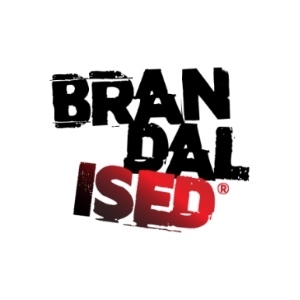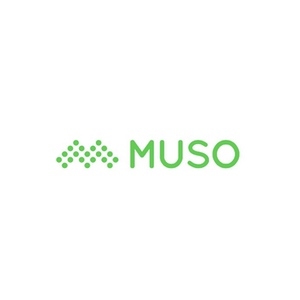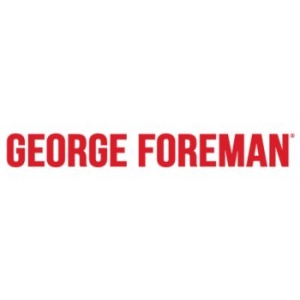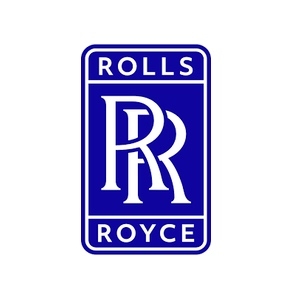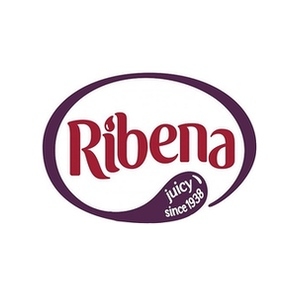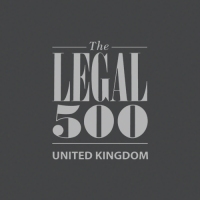Search-a-brandPowered by BRANDSMITHS
Search-a-brand assists you in researching, choosing and building a brand for your company, service or product. Try it out and search with the intended name!

NAVIGATING IP: AN INTRODUCTION
Author: Shaala Ali
The Importance of Protecting Your Intellectual Property: Key Strategies for SMEs.
Introduction
In today’s increasingly digitalised world, intellectual property (IP) plays an ever more important role. While IP might appear as a complex legal concept, grasping its significance and ensuring protection for your business is absolutely vital for success. In a recent report, the number of trademark grants worldwide saw a huge increase, with approximately 11 million grants in 2021 compared to 8.57 million in 2020. Likewise, the number of patent grants has also been rising each year, reaching about 1.76 million in 2021. This indicates a growing trend among businesses to prioritise safeguarding their IP.
IP encompasses a wide range of intangible assets from innovative ideas and inventions to creative works. These assets not only fuel competitiveness but also foster progress. However, the escalating risk of infringement and unauthorised usage in our digital society makes protecting your intellectual property more critical than ever before. In this blog post, we will delve into the significance of safeguarding your intellectual property and explore key strategies to secure these valuable assets effectively.
What is Intellectual Property?
Before examining why, it is important to protect your IP and how to protect it, it is integral to understand the various forms of intellectual property. IP refers to a wide range of creations of the mind, but it can generally be broken down into four main categories:
1. Patents: Patents protect inventions and grant exclusive rights to inventors which allows them to prevent others from making, using, or selling their inventions without permission. In order to get a patent, technical information regarding the invention must be made known to the public via a patent application.
2. Trade marks: Trade marks involve protecting various elements of branding like names, logos and slogans which are used to distinguish one business’s goods and services from that of its competitors.
3. Copyrights: Copyrights which are also known as ‘author’s rights’ protect the original works of creators such as literary, artistic, musical, and dramatic creations. Therefore, copyrights can cover a wide range of works from books, music and film to computer programs and technical illustrations. Copyright provides creators with exclusive rights over the reproduction, display, and distribution of their works. Designs: available in both registered and unregistered form, designs generally protect the visual appearance of a product, which can in some circumstances include colours, materials and ornamentation.
4. Trade Secrets/confidential information: Trade secrets and/or confidential information in businesses is material which is valuable and not known to the public such as formulas, processes and data which may give a business a competitive advantage.
Why do I need to protect my business’s IP?
The significance of protecting IP is often underestimated by business owners. However, protecting your IP is integral for numerous reasons:
It helps you retain your competitive advantage. IP protection like patents, trade marks and copyright, gives you and your business exclusive rights to your creations and inventions. Ultimately this stops others from using and copying the things which drive your revenue without your permission. By preventing others from exploiting your IP, you secure your position in the market and can maintain and grow your customer base.
It can add value to your business. Protecting your business’s IP can also add value if you decide to sell your business or try to attract investors. Having valuable IP assets is often desired by potential investors because of the competitive advantage they give. This is because intangible assets such as trade secrets and brand recognition are what make a business valuable.
It can provide additional revenue streams. Intellectual property can be monetised through licensing, franchising, royalties, or outright sale. Furthermore, there is potential to make revenue from enforcing your IP against possible infringers. Therefore, protecting your intellectual property can produce additional revenue streams.
Keep up with technological changes. Despite the Internet being vastly beneficial for promoting businesses to wide-ranging audiences it also increases the chances of intellectual property theft. All businesses, regardless of size, are now at risk of having their ideas or products infringed upon from anywhere in the world, making protecting your intellectual property more important than ever to prevent online infringement.
In addition to this, with the speed at which technology continues to develop ensuring you own your intellectual property means you have the right to commercialise your business in line with new and emerging technologies such as AI (artificial intelligence), VR (virtual reality) and AR (augmented reality).
Star Case: Philip Warren & Son v Lidl
Philip Warren & Son is a family-run business renowned for its high-quality meat and strong local presence in Launceston, Cornwall. However, during the period between 2015 and 2020, a predicament arose when retail giant Lidl began branding its meat products as "Warren & Sons". Following this, a surge of customer complaints was received, wrongly assuming that the family butchers were associated with the lower-quality products sold at Lidl stores.
The photos below show the marks in question.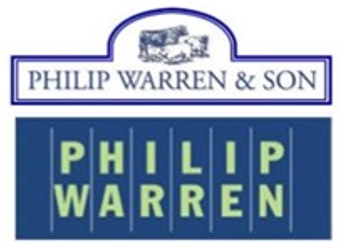
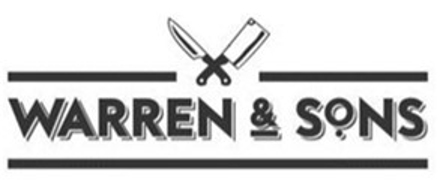
Unfortunately, Philip Warren & Son, being a small business, had not grasped the significance of safeguarding their intellectual property through trademark registration. Consequently, they had no other option but to seek remedy under the concept of "passing off". However, for such a claim to succeed, it necessitates providing evidence that Lidl's actions caused substantial harm to the family's business, which proved to be a difficult task. A further difficulty was that by relying only on passing off, the nature and extent of the goodwill was an issue. It was localised and for higher-end products. It didn’t extend to the whole of the UK or take into account the type of consumer that typically shopped at Lidl.
Philip Warren & Son's revenue actually increased during the same period that the product was sold at Lidl. In addition, the court decided it was unlikely the two businesses would be confused with one another due to the local aspect of Phillip Warren & Son’s business. As a result, their passing off claim fell through due to the complex nature of the claims, particularly when a business hasn't adequately protected its intellectual property. The case highlights a lesson for all SME business owners: the utmost importance of protecting your intellectual property, regardless of your company's size.
Had Philip Warren & Son taken the initiative to register their trademark, their chances of winning the legal battle against Lidl may have significantly improved. This result emphasises the essential role intellectual property protection plays in ensuring the success of your business. Whether you are a small, medium, or large enterprise, safeguarding your intellectual property should never be overlooked, as it can be the key to preserving your brand's identity, reputation, and success in the marketplace.
Key Strategies for IP Protection
Now we know how important it is to protect our intellectual property what should we do?
- Conduct regular IP audits: It is integral to know what IP you have and its significance to your business strategy. Therefore, you should first start by conducting comprehensive audits to identify and classify all your intellectual property assets and potential IP assets, their value, and ensure their proper protection. Regular audits help you stay informed about your IP portfolio and take suitable actions to address any gaps or vulnerabilities.
- Implement internal IP safeguarding procedures: A priority for any business owner should be to establish internal policies and procedures to safeguard intellectual property within your organisation. This includes implementing confidentiality agreements, restricting access to sensitive information, and educating employees about IP protection best practices.
- Secure Proper Legal Protection: You should consider working with experienced intellectual property lawyers to obtain the necessary legal protections for your assets, such as patents, trademarks, copyrights, or trade secret agreements. These legal safeguards provide you with exclusive rights and recourse in case of infringement to protect your business assets.
- Monitor and Enforce IP Rights: It is also recommended that you continuously monitor the marketplace for potential infringement or unauthorised use of your intellectual property. If any infringements are found it is important to swiftly enforce your rights through cease-and-desist letters, negotiations, or legal actions when necessary to protect your assets with the assistance of experienced intellectual property lawyers.
International IP Protection: If your business operates globally you may want to consider seeking IP protection in the countries where you do business or anticipate expansion. International protection can help safeguard your assets and prevent infringement in foreign markets.
ConclusionIn summary, protecting your intellectual property is a non-negotiable for successful businesses as it helps to maintain the value of your brand. By gaining an understanding of the different forms of intellectual property and how you can implement protecting them you can safeguard your business for long-term success. Working with legal practitioners experienced in navigating the complexities of intellectual property protection can help you with the necessary guidance and expertise needed to protect your business. Protecting your IP today can help to save you from more costly legal battles and potential loss of market or revenue in future.
About Brandsmiths
Brandsmiths is the go-to firm for the world’s leading brands. Entrepreneurial, dedicated, and versatile, we are privileged to advise some of the world’s most exciting brands and entrepreneurs. With a highly skilled team, the firm specialises in all matters related to trade marks, copyright, patents, rights & designs, confidential information, and database rights. Our experts grow and protect some of the world’s biggest brands.
Contact us
For more information, please contact: info@brandsmiths.co.uk
Brandsmiths is a trading name of Brandsmiths S.L. Limited which is authorised by the Solicitors Regulatory Authority, SRA No: 620298. Founding Partner: Adam Morallee
Privacy and Cookie Policy | Terms and Conditions | Complaint Procedure | Site by: Elate Global
